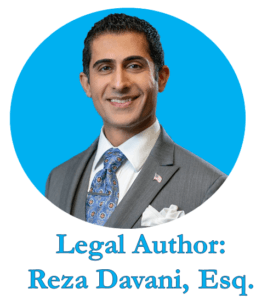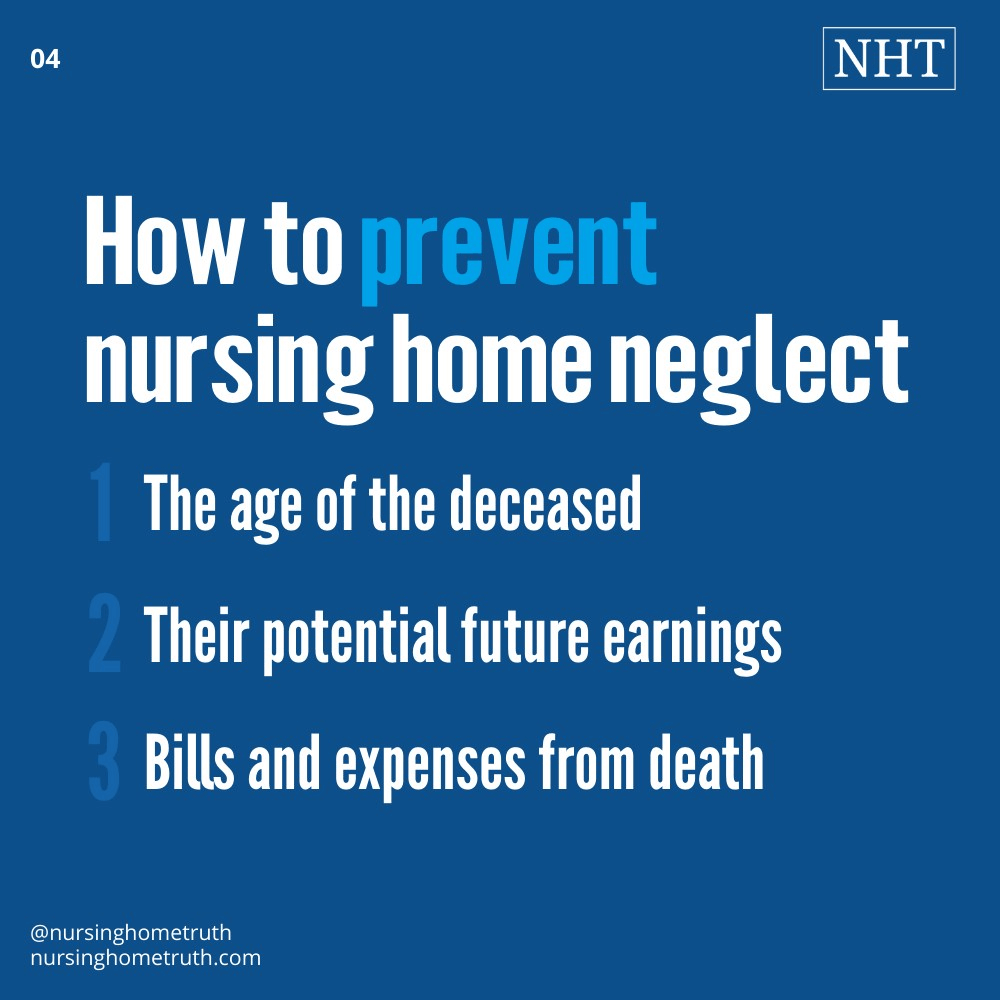Article Updated: September 30, 2022
Suing a Nursing Home For Negligence
If you are reading this, it is likely because you are searching for answers as to what happened in a nursing home to someone you know.
There is a path to get those answers. It begins with an investigation, including expert and medical record reviews.
Ultimately, and frequently, it results in suing a nursing home for negligence because the facility caused avoidable injuries.
I trust my research and guidance here will assist your journey for the truth. Who am I? A national nursing home abuse and bedsore lawyer who has conducted 500+ nursing home claim investigations on behalf of victims and their families.
If you have more questions after reading this article, call or email me for help, as I’ve handled hundreds of nursing home abuse claims and can help you get answers.
Clickable Table of Contents
Suing a Nursing Home for Negligence
1 – What is Nursing Home Neglect
2 – Preventing Nursing Home Neglect
Logistics of Suing a Nursing Home
3 – Can You Sue a Nursing Home
4 – Suing a Nursing Home for Torts & Breaches of Contract
5 – Process for Suing a Nursing Home
Good & Bad Reasons to Sue a Nursing Home
6 – Should I Sue the Nursing Home ?
7 – Bad Reasons to Sue a Nursing Home
8 – Good Reasons to Sue a Nursing Home
Benefits & Outcomes of Suing a Nursing Home
9 – Benefits of Suing a Nursing Home
10 – How Much Can You Sue a Nursing Home for
Resources
11 – Get Legal Help Suing a Nursing Home
12 – About the Author
13 – Legal Help in Maryland & Nationally
What is Nursing Home Neglect
The Problem of Nursing Home Neglect
According to the National Council on Aging (NCOA), elder abuse is a major problem in America as one out of every ten Americans who are over the age of 60 have experienced abuse in one form or another.
In 1987, the federal government created laws to help stop this issue within nursing homes.
Those laws have done little to stop this pandemic of abuse.
Types of Nursing Home Neglect
In terms of nursing home neglect, the bad nursing facility or its staff may commit one or more of the following bad acts:
◊ Neglect from verbally abuse residents
◊ Neglect from not providing basic hygiene
◊ Neglect in administration of medication
◊ Neglect in turning and repositioning leading to bedsores
◊ Neglect in oral care leading to infections
◊ Neglect to provide basic food and water
◊ Neglect to watch residents leading to falls
This is by no means a comprehensive list. I provide a more robust list of nursing home neglect on a different page.
Preventing Nursing Home Neglect
There are things you can do to help limit the occurrence of neglect. I write an investigatory article which is the result of extensive research on just this one issue.
To recap some of what I shared in that research, you can help limit neglect and abuse by doing these things:
◊ Research. Research the facility where you place your loved ones. Check online reviews, but be mindful that facilities can and likely do create fake reviews to trick you. In fact, a facility recently was investigated by the federal government for falsifying its available online rating to trick people like you.
◊ Educate. Teach yourself the signs of neglect so you are more likely to spot it when you visit your friends and family in a nursing home.
◊ Visit. This goes hand in hand with the prior step, you must visit the folks you know in a nursing home. Those visits let the bad nursing homes know that you have eyes on them and what they do, which will help deter them from neglecting your loved ones.
Despite your best efforts, however, nursing homes may still be neglectful. When that happens, you may be left with no choice but suing the nursing home for negligence, which I’ll dig into below.
Can You Sue a Nursing Home
Limitations on Who Can Sue
Not everyone is in a legal position to sue a nursing home.
I mean this quite technically, and in the legal world it is called standing.
Only four categories of people have legal authority to sue a nursing home for negligence.
Who Can Sue for Living Victims of Neglect
If the victim is alive, here are the people who have legal standing to sue a nursing home:
◊ The nursing home victim / resident
◊ The nursing home victim’s power of attorney
◊ The nursing home victim’s court appointed guardian
Who Can Sue for Deceased Victims of Neglect
If the victim is deceased, only these people have a right to sue a nursing home for negligence:
◊ The dead victim’s wrongful death beneficiaries
◊ The personal representative of the dead victim’s estate
If you do not fall into one of those categories, you have no legal ability to sue a nursing home, even if you are a brother, sister, or partner of 20+ years.
Finding Ways to Sue a Nursing A Home
However, a brother, sister, or partner of 20+ years can take legal steps to place themselves into one of the foregoing categories and thereby gain the ability to sue a nursing home. That gets a bit complicated, and you’ll have to call me for help with that.
Suing a Nursing Home for Torts & Breaches of Contract
There are two basic legal claims that you can raise when suing a nursing home. They are a tort action and breach of contract action.
There are other claims, too, but these are the most common.
Suing a Nursing Home for a Tort
A tort is a classic personal injury action. It includes all bodily injury type claims caused by the actions or inactions of a nursing home..
A non-exhaustive list of different types of torts for which you can sue a nursing home include:
◊ Abuse in Nursing Homes
◊ sexual assault
◊ physical abuse
◊ staff choking a resident
◊ Neglect in Nursing Homes
◊ abandonment
◊ leaving in soiled clothes
◊ not brushing teeth
◊ not showering
◊ not doing laundry
◊ not providing clean clothes
◊ dehydration
◊ malnutrition
◊ Malpractice in Nursing Homes
◊ medication errors
◊ colostomy bag errors
◊ catheter errors
◊ stroke mismanagement
◊ UTI mismanagement
◊ infection control issues
◊ Negligence in Nursing Homes
◊ falls
◊ bed sore
There are other claim types, too, but based on the hundreds of nursing home cases I’ve investigated these are absolutely the most common and likely cover 95%+ of the reasons that someone sued a nursing home.
Suing a Nursing Home for Breach of Contract
When someone is admitted to a nursing home, they sign an admission agreement. That agreement is a contract.
If the nursing home does not uphold its side of that bargain, it can be sued for breach of contract.
In that type of lawsuit, you must prove:
◊ The nursing home had a contractual obligation to do something
◊ The nursing home did not do that something
◊ The beneficiary of the contract suffered harm
Based on the type of claim you raise when you sue a nursing home, you will be entitled to different sets of recoverable damages.
The law in each state is different, and will outline what damages are recoverable for each claim type.
A lot of states only allow recovery for benefit of the bargain damages in breach of contract cases.
Do not waste effort researching that on google. You will go down a rabbit hole that will not result in answers or only lead to wrong answers.
I have spent weeks researching the nuances of that issue for Maryland, Virginia, and Pennsylvania law, using a paid subscription to WestLaw.
Trust me, if you are considering a breach of contract action against a nursing home you need a lawyer.
Process for Suing a Nursing Home
The process for suing a nursing home is fairly straightforward, assuming you are handing the baton to a lawyer to do the work for you.
The basic steps are:
◊ Collect and document evidence
◊ Give the evidence to a lawyer and sign documents allowing the lawyer to conduct an investigation
◊ Based on the lawyer’s investigation decide whether to settle or due the nursing home
Assuming you do not settle your claim and proceed with suing the nursing home, the litigation will include these steps:
◊ Pleadings. This includes a complaint and necessary expert affidavits and reports certifying the case, which is required in every state.
◊ Discovery. Depositions where live testimony is recorded will be taken of you and possible witnesses, and any party to the lawsuit will have to answer written questions and may even have to be examined by a medical expert.
◊ Trial. Nursing home trials are usually 1-2 weeks long, and very emotional. Unless the case settles, a random group of people, the jurors, will decide how much money the victims get.
If someone challenges the results of the trial, you could be looking at an additional 2 years of appeals and potentially another 2 years of re-trying the case.
If that does not happen, these cases take about 3 1/2 years front to back.
Should I Sue the Nursing Home ?
Once you have evidence in hand via signs of neglect that you’ve identified, the next question is whether you should sue the nursing home.
You have to weigh the pros and cons of suing a nursing home versus taking other actions.
Your options, including suing a nursing home, include:
◊ File a complaint with the nursing home
◊ File a complaint with the Ombudsman
◊ File an complaint with the Department of Health
◊ Sue the nursing home
The reasons to sue a nursing home versus filing a formal complaint with the facility or government agency will vary depending on the injury in question, and other unique situations.
You need to have a good reason to sue a nursing home, because without good reasons nursing home neglect and abuse attorneys will not pursue the case.
Below I will outline good reasons, but first let me rule out some bad reasons to sue.
Bad Reasons to Sue a Nursing Home
Let me preface the list by saying that the list does not suggest that the nursing home did not do something wrong.
The items in this list are all signs of elder neglect, proof the nursing home did or is doing something wrong, and may be signs of negligence.
However, due to what’s involved in suing a nursing home for negligence, it is unfortunately not an option to file a nursing home lawsuit for everything that nursing homes do wrong.
With that out of the way, here’s a short list of some reasons why suing a nursing home for negligence or bad acts is not a good, or viable, option:
◊ Losing your loved ones clothes
◊ A fall with only bruises
◊ Difficulty scheduling to meet management
◊ Delays in scheduling physical therapy
◊ Nurses are rude to you
If this is what you are dealing with, the best option may be to take agency action; e.g., filing a complaint with an ombudsman.
Good Reasons to Sue a Nursing Home
I won’t outline a list here because all good reasons to sue a nursing home will have one common denominator.
Without that one variable present, an elder abuse lawyer is unlikely to pursue the claim.
The one common fact present in all the good reasons to sue a nursing home is the presence of significant physical injuries.
The only broad exception would be sexual abuse cases, where the injury may be largely psychological or emotional yet the case maintains its viability.
I’ll run through a few samples to help give you an idea of what I mean.
Bed Sores
Bad reason to sue if it’s a stage I or II bed sore.
Good reason to sue is if it’s a stage III or IV bed sore accompanied with significant treatment and wound does not quickly heal.
Falls
Bad reason to sue if fall caused wrist sprain and bruise on head, or a non-displaced fracture that only needed a cast with no surgical intervention.
Good reason to sue if the fall caused hip fracture needing surgery.
Generally
If your situation is not covered, I invite you to call or message me your question.
If your situation is covered, then continue reading to learn about the benefits of suing a nursing home for negligence.
Benefits of Suing a Nursing Home
Other than recovering money (which I cover the next section), here are some benefits that you can achieve by suing a nursing home:
◊ Prevent this from happening to other people by holding the nursing home accountable
◊ Recover medical expenses caused by the nursing home’s negligence
◊ Get money to provide better care for the victim
◊ Achieve a sense of justice that the right thing was done
Many of those objectives are achieved through forcing the bad nursing home to pay, with money, for what it did.
How Much Can You Sue a Nursing Home for
General Limits on Recoveries in Nursing Home Cases
In one sense, there is no limit for how much you can sue a nursing home for.
More technically, however, I’ll note that many states have limits on how much money you can recovery from a nursing home.
Those limits are based on the fact that nursing home lawsuits are medical malpractice cases, and other limits are placed on how much you can get for pain and suffering.
Nursing Home Verdict & Settlement Sample Results
If you are looking for sample verdicts or settlements, use the links below.
I researched and prepared separate articles based on nursing home settlements and verdicts, and sorted them based on injury and case types.
These include:
◊ Shoulder surgery settlements
◊ Knee injury/surgery settlements
◊ General nursing home settlements
These results should come with a disclaimer – you cannot reverse engineer the potential value of your claim using these results.
Being a true trial lawyer and taken many cases to trial, I know that dozens of nuanced factors formulate the value of a specific case.
Knowing just the injury type won’t give you a genuine value range. Only doing a deep dive of your facts can accomplish that.
Get Legal Help Suing A Nursing Home
Nursing home lawsuits are complex medical malpractice cases. They often require 3+ experts, and hundreds of hours of workup.
The nursing home will never give you a fair shake unless they know you have a lawyer, and that lawyer is experienced with nursing home cases.
That’s what I am here for. Let me help you win. Call, email, or fill out the contact form below to recruit my nursing home expertise and get justice for what was done to you and your family.
Warmly,
Reza Davani, Esq.
State Bar No.: #1212110211
Federal Bar No.: #30168
Cell phone: (301) 922-4598
Email: reza@nursinghometruth.com

Supporting Literature, Citations & Resources:
About the Author
This nursing home and medical malpractice article was written by Baltimore, Maryland nursing home attorney Reza Davani, Esquire. Mr. Davani received his Juris Doctor degree from a Tier 1 law school, the University of Maryland Francs King Carey School of Law. He received his first license to practice law from the State of Maryland’s Court of Appeals (MD State License No. 1212110211), and just four months later received a federal law license from the United States District Court for the District of Maryland (Federal License No. 30168).
Mr. Davani has been practicing law for over 10 years. He began practicing law by helping clients as a sanctioned student lawyer before receiving his law license, and second chaired his first jury trial in federal court before even graduating law school. He is a registered member of the Maryland Association for Justice (MAJ), the American Bar Association (ABA), the American Association for Justice (AAJ), and was formerly on the MAJ’s Legislative Leader’s Circle.
Mr. Davani has taken over 20 cases to trial in state and federal court, and favorably settled well over 100 cases for injured victims. He has personally helped his clients recover over $15,000,000 in personal injury, medical malpractice, and nursing home abuse settlements and verdicts in Maryland and other states. He is dedicated to fighting for justice, and welcomes the opportunity to help you.
Nursing Home Abuse Lawyer Near You in Baltimore, Maryland & Beyond
I can help you anywhere in Maryland, including Allegany County, Anne Arundel County, Baltimore City, Baltimore County, Carroll County, Calvert County, Caroline County, Cecil County, Charles County, Dorchester County, Frederick County, Garrett County, Harford County, Howard County, Kent County, Montgomery County, Prince George’s County, Queen Anne’s County, Somerset County, St. Mary’s County, Talbot County, Washington County, Wicomico County, and Worcester County.
I have helped clients in over a dozen jurisdictions, including California, Delaware, District of Columbia, Georgia, Illinois, Iowa, Massachusetts, Maryland, Mississippi, New Jersey, New Mexico, New York, North Carolina, Pennsylvania, South Carolina, Washington, and Virginia.
I help injured victims nationwide in all 50 states on a case-by-case basis via Pro Hac Vice.









